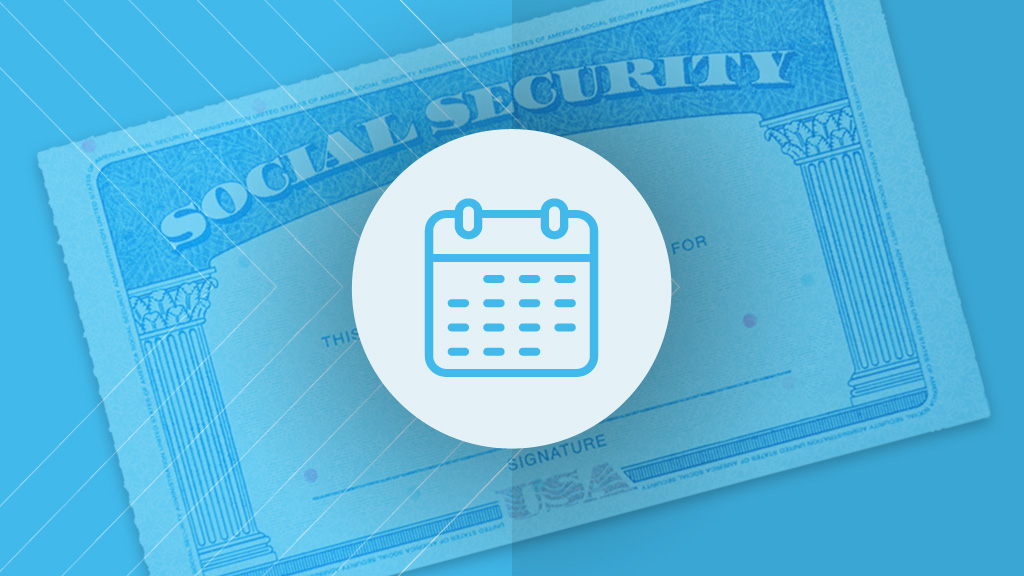Don’t Rush to the Exit: Social Security Filing Advice

The Social Security Administration has again delayed office reopening as the pandemic grinds on. In-person appointments are limited to urgent situations. And your retirement planning generally doesn’t fall into that category.
I work daily with financial advisors and their clients who are peering into retirement and asking, “When should I file for Social Security?” The answers to that question are about as unique as your fingerprint.
If you’re considering if or when to file, I have these tips and advice for navigating this extended period of SSA remote operations.
Register for an account on SSA.gov and review your earnings record.
This is the first thing to do if you already haven’t. And if you did it but long ago, you need to confirm that you have your sign-in credentials.
Once you register on ssa.gov, you can see the earnings record that the agency has on file and check its accuracy. Wonder how much you earned in 1978? It’s there. If you think your salary history isn’t correct, now is the time to address that. The SSA explains how in this publication.
Once signed in, you can see how much your benefit would be if you retire:
- At age 62 or now, if you’re older than 62.
- At the full retirement age (a different period depending on the year you were born).
- At age 70, when benefits are capped (but also the most generous).
Get professional financial advice.
As good as the SSA’s online tools are, they do not replace expert, unrushed advice from someone who understands your situation. I also know from experience that too many people ask their friends for advice. Your friends aren’t experts.
It’s critical to work with a financial advisor with advanced software to evaluate Social Security filing options for you and a spouse. A financial advisor will also probe your entire portfolio and consider your answers to questions that include:
- What income sources – taxable and tax-advantaged accounts, pensions, real estate income – do you have for retirement?
- How much will you need annually to support your household in retirement?
- Could you have more money over your lifetime by waiting to file, working longer, or working part-time?
- If you’re married, what are the consequences of filing for both you and your spouse?
- Will you and your spouse retire simultaneously, or will one of you work longer?
- What will the benefits be when you or your spouse or partner dies?
- How much do you want to help your family financially when you’re retired or through your legacy?
Consider closely what each option and any decision mean for you and your family.
Social Security has more than 2,700 rules. There’s a lot that people don’t know. I’ve spent time educating people with answers to questions, including:
- What is withheld from my Social Security benefits?
- What happens when one spouse dies?
- What is the cost-of-living increase (COLA), and how is it applied?
- How does filing at different ages affect my total lifetime benefit?
People are often surprised to learn that, with exceptions, benefits are taxable. And that when one spouse dies, the other doesn’t continue to receive both benefits.
Sophisticated financial software can help your advisor illustrate different filing scenarios and what those will mean for your household. It’s information you want to have before you decide on filing.
Remember: Taxes will not go away because you retire.
A financial advisor should evaluate your household’s (you and your spouse’s) tax liabilities and suggest ways to make your portfolios more tax efficient. My firm, LifeYield, estimates that people can have one-third more in assets available in retirement if they apply principles of tax efficiency in their investments and their strategies for withdrawal.
Don’t rush. There’s a lot at stake.
Social Security provides on average 30% to 40% of what someone earned while working. That’s an excellent foundation, of course. And it’s attractive if you, like many, are wrung out from working in the pandemic.
But taking a deliberate, informed approach to Social Security filing makes sense. Longer life expectancies lead to retirements that can last 30 years or more. The economy will almost certainly fluctuate between good times and bad when you’re retired. You’ll need your assets to withstand downturns and inflationary cycles (like one that’s going on now).
Working with a financial advisor and taking a step back to look hard at your finances and goals will get you where you want to be at every stage of your retirement.
Read the original post on TheStreet here.
Monthly insights from our Chief Growth Officer, Jack Sharry
Get exclusive insights and interviews from around the industry

 By
By 




